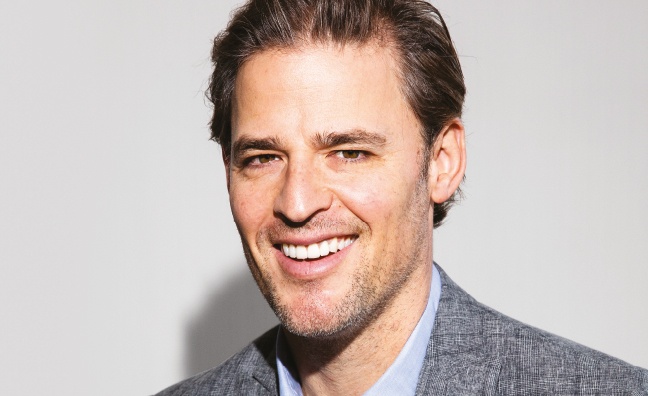Round Hill Music boss Josh Gruss has rejected claims that the catalogue boom is ruining the playing field for traditional publishers.
The entrepreneur founded the US and UK-based music publishing company - one of the largest independent music rights holders in the world - in 2010.
Setting his sights on “evergreen” bodies of work with proven longevity, Gruss' pioneering approach paved the way for the explosion of interest in the market, accelerated by Hipgnosis' aggressive spending spree and rapid growth. But the CEO suggested any complaints from the established power players about the shifting sands were simply sour grapes.
“In the first eight years of Round Hill’s existence, not once did we compete with the majors," Gruss told Music Week. "The majors did not care about buying catalogue; they were closed off to it and they missed a really big opportunity. Everything that we operate probably used to be with a major, so they’ve watched so much of their property disappear and wiggle out through their fingers by groups like Round Hill, Primary Wave, Hipgnosis.
"It’s probably hard for them to watch a company like Hipgnosis dominate and get so big, so quickly. So whenever they criticise our area, I think it comes from jealousy or being a little bit upset that they can’t rule the game like they used to."
You just didn’t have this marketplace to sell your catalogue like this 10 or 15 years ago
Josh Gruss
Round Hill, which floated on the London Stock Exchange in 2020, boasts a portfolio of more than 120,000 tracks includes songs recorded by artists including Alice In Chains, Bush, Celine Dion, Carrie Underwood, The Supremes and Wilson Pickett. Last year it confirmed major new deals for catalogues by David Coverdale and Nancy Wilson, and announced a worldwide acquisition agreement with Herman Rarebell, best known for being the drummer in German rock band The Scorpions.
Moreover, the major publishers have been spurred into action to complete blockbuster deals for legendary catalogues such as Universal Music Publishing Group with Bob Dylan and Sting, and Sony Music Publishing with Paul Simon.
"It’s been such a boon for songwriters, because then all of a sudden, the majors did start buying catalogues, but they focused on the huge iconic artists they didn’t want to lose, like Bob Dylan, Sting or Paul Simon," said Gruss, speaking in our latest issue.
"You just didn’t have this marketplace to sell your catalogue like this 10 or 15 years ago. You might not have been able to sell it at all, or you’d have to sell it at a price that was too low. So it’s been a really great thing for artists and songwriters to get some liquidity and at the end of their career, sell their business, cash out. That’s a really positive thing.”
Although he was ahead of the curve when launching Round Hill 13 years ago, Gruss said it wasn't until 2017 that the financial world began to sit up and take notice.
Other competitors didn’t start until seven or eight years after we did
Josh Gruss
"It didn’t get validated for a number of years, so for a while I was questioning whether what we were doing made sense," he said. "We waved the flag for music royalties hundreds of times, took so many investor meetings and that led to raising money but it was something that no one had heard of - not even the most sophisticated investors we spoke to had ever come across the space.
"Other competitors didn’t start until seven or eight years after we did. It helped us in a way [when they did] in that it spread recognition, but obviously it allowed for more competition too.”
But despite that intense level of competition, Gruss is adamant that all parties can continue to coexist.
"Everybody seems to find their own opportunities, and there are enough opportunities to go around," he said. "But the proliferation of competition seems to go up each year. I knew back in the day, if I was right about this space, there was going to be a lot more competition one day. And lo and behold, we’re kind of there now, so what do you do? You have to have more scale, work harder and have an offering that’s different from the rest. I still think we have that here."
He added: “Artists only sell us half their copyrights, which means they’re partners with us, so they become really happy when they watch the half they still own go up and up in value. And we do a lot of record deals – we did a deal with Blues Traveler where we bought their catalogue and then put out a new record for them. That record [Traveler’s Blues] got nominated for a Grammy two years ago. So there are all sorts of ways in which artists are happy with our work.”
Subscribers can read the full interview with Gruss here.










